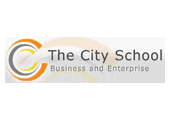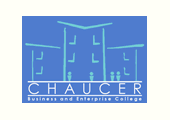Access keys
Search Skip navigation
The Sheffield College
Year 3: M-learning - A Tool for Transformation in Sheffield (MATTS) - Phase Two 2009/2010







Project Description
MATTS will utilise its expertise and via a cross-City collaborative partnership, disseminate good practice to an increased number of locations, learners and staff. By strategic placing of MoLeNET purchased devices and increasing use of learner-owned devices it will increase success rates across Sheffield. It will be ‘A Tool for Transformation.
It will also:
Deliver increased efficiencies in vocational and work place assessments, including the Diploma, using M-technology to record evidence for subsequent online validation.
Support the delivery of Diploma courses
Introduce Learner Voice to:
(i) Full-time courses delivered at our Hillsborough and Norton campuses
(ii) Y10 courses with partner schools.
Aims:
In phase two of MoLeNET, Sheffield College began to transform its practice radically through the use of mobile learning devices. In this next phase of the project we aim to develop a collaborative partnership, providing the impetus to extend this transformation across all 14+ schools and colleges within Sheffield.
Building on experience gained in The Sheffield College MoLeNET2 project, we aim to:
• embed mobile learning in work-based and Diploma programmes across school and college provision in Sheffield;
• exploit this collaborative practice to develop a city-wide strategy for the deployment of learner owned devices.
• develop best practice models
Objectives:
The partnership will utilise the experiences and expertise gained during MoLeNET2, and via a dynamic collaborative partnership will disseminate good practice and touch an increased number of locations, learners and staff. By strategic placing of MoLeNET purchased devices and increasing use of learner-owned devices we will increase retention, skills and achievement.
We will build on the success of MATTS (M-Learning, A Tool for Transformation in Sheffield) in The Sheffield College in 2008/09. We will extend the MATTS model across a wider range of both providers and age groups, through our partnership with ‘The Sheffield Diploma Consortium’, and thereby Sheffield Secondary Schools. We will support the vision in ‘Made in Sheffield: City of Opportunity, A Skills Strategy for Sheffield ’ (Sheffield City Council, 2009), and The Sheffield College’s own strategic objectives, as well as Raising Aspirations, Sheffield City Council's 14-19 Strategic Plan. The project will also support the nation's first Digital Region, which aims to stimulate the economic growth of south Yorkshire through the availability of high speed, next generation broadband services to businesses and residential users.
We will embed the CAMEL (Collaborative Approaches to Managing E-Learning) approach to the project and create a community of practice whereby organisations learn and develop together.
Objective 1 - increase the retention, skills and attainment of participants on work-based and Diploma programmes through the use of M-technology.
Objective 2 - Provide a model for the use of mobile technologies that can be replicated by practitioners throughout Sheffield education providers.
Objective 3 - Contribute to the development of pedagogical approaches and teaching and learning strategies for new Diploma programmes within the Sheffield Diploma consortium
Objective 4 - Introduce new ways of encouraging and utilising the learner voice by harnessing mobile technology and using this to inform and shape future practice
Objective 5 - Achieve a transformation in providers' approach to ILT development that moves from provider of hardware to that of distributed ownership of technology (DOTS), whereby connectivity is encouraged through learners' own devices.
Within this headline framework, the project supports a number of both College and school enabling strategies, including: Learner Journey, Workforce Development, Teaching and Learning Innovation, E-Learning and New Era Strategies. In particular, we are looking to support the development of the recently instigated Diploma qualifications. It will also support increased collaboration between providers in Sheffield in anticipation of changes in the Machinery of Government and the transfer of funding for 16-19 provision to the Local Authority.
Target Audience:
• College vocational and work-based learners:
16-18 Apprentices Workbased Various 2 and 3
19+ Train to Gain Workbased Various 2 and 3
16-18 Vocational Learners Entry 2 to Level 3 (some NEET and some LLDD)
• College students (predominantly 16-18) at our Hillsborough and Norton campuses who take part in the ‘Learner Voice’ strand
• School and College students who are studying Diploma qualifications
• School students in Y10 who take part in the ‘Learner Voice’ initiative
Partners
Stockbridge High School, Wisewood School and Community Sport College, The City School and The Sheffield Diploma Consortium
Year 2: M-learning - A Tool for Transformation in Sheffield (MATTS) 2008/2009

The focus of the project is to:
- Deliver increased efficiencies in vocational and work place assessments using m-learning to record evidence and subsequently store this in e-portfolios for tutors/assessors to validate online.
- Introduce Learner Voice to all full-time courses delivered at our City Centre campus. Learners will submit one page course 'bids' telling us what mobile technology they want to use and how they want to use it in their learning. Existing students will also identify how m-learning could be used to re-engage NEETs.
In total 800 learners supported, 400 Full Level 2/3, and a minimum of 60 NEETs re-engaged.
Project Aims
The aims of the project are to use m-learning to:
- Improve effectiveness – enhancing personalised active learning, leading to improvements in retention and achievement
- Improve efficiency –improve the efficiency of learner assessment, addressing the challenges of sharply increasing numbers of work-based learners
- Widen participation – attract new cohorts of young people into learning and re-engage NEETs
- Develop capacity – build communities of shared m-learning practice across the college using the CAMEL approach.
- Promote Learner Voice - approach m-learning in a highly innovative way, directly asking learners how they want to use the technology to learn.
Project Objectives
Strategic Objectives
The primary strategic objective of the project is to take forward all four of the College’s Strategic Priorities, set out in our published strategy ‘Moving Forward Together’ 2008-2011.
These priorities are:
- Excellence in teaching, training, learning and achievement
The project contributes to this priority by up-skilling staff, and providing 21st century resources and methods of learning for our learners,
- Services that are relevant to learners and employers
The project contributes to this priority by investing in technology which is highly relevant to young people, allowing them to learn with technologies familiar to them. It is also highly relevant to employers: the flexibility m-technologies affords, allows learning and assessment to take place without disruption to normal working patterns and practices.
- Services that are delivered efficiently and effectively
One of the key aspects of the project is the exploration of the use of m-technologies for the assessment of work-based learning. The efficiency benefits of this element of the programme are potentially significant, and are needed to help address the challenges of sharply increasing numbers of work-based learners.
- Building our capacity to deliver and to improve
The programme supports this priority by investing in capital resource and developing the capacity of our staff to deliver learning using m-technologies.
Below these four headline priorities, the project supports a number of College enabling strategies, including, Learner Journey, Workforce Development, Teaching and Learning Innovation, E-Learning and New Era Strategies.
Operational Objectives
The specific objectives of the project, which contribute to the achievement of College strategies and help address both local and national priorities, are:
Learners
- Support a total 800 learners with m-learning
- 400 Vocational learners at FL2/3 supported with m-learning
- 400 Students using m-learning through our Learner Voice programme
- Through Learner Voice identify m-learning activities which have the potential to re-engage, with 60 NEETs reengaged.
- A minimum of 120 learners using m-learning to support the development of Skills for Life
- Measurably improve the learner experience taking account of existing knowhow, including first round MoLeNET findings and from the JISC learner experience of e-learning (LEX) studies.
Staff
- Through the CAMEL approach, build an ongoing community of shared m-learning practice across the college in a minimum of seven curriculum areas with thirty staff in the first instance.
- Develop the tools to self-assess m-learning skills at individual teacher level.
- Establish a framework for the delivery of ongoing m-learning training for staff and learners
- Establish increased delivery capacity by using e-portfolios and remote assessment as a means for enabling significant efficiency gains.
Infrastructure
- Establish a substantial physical resource for the delivery of m-learning
- Dovetail m-learning and Wi-Fi access in our £60M new build (starting to be released in 2009), underpinning our vision of a wireless campus with learners accessing resources on the go with the support of m-technologies procured through this project.
Strategy and Partnerships
- Establish an m-learning strategy and embed this within our Teaching and Learning Innovation and E-learning strategies